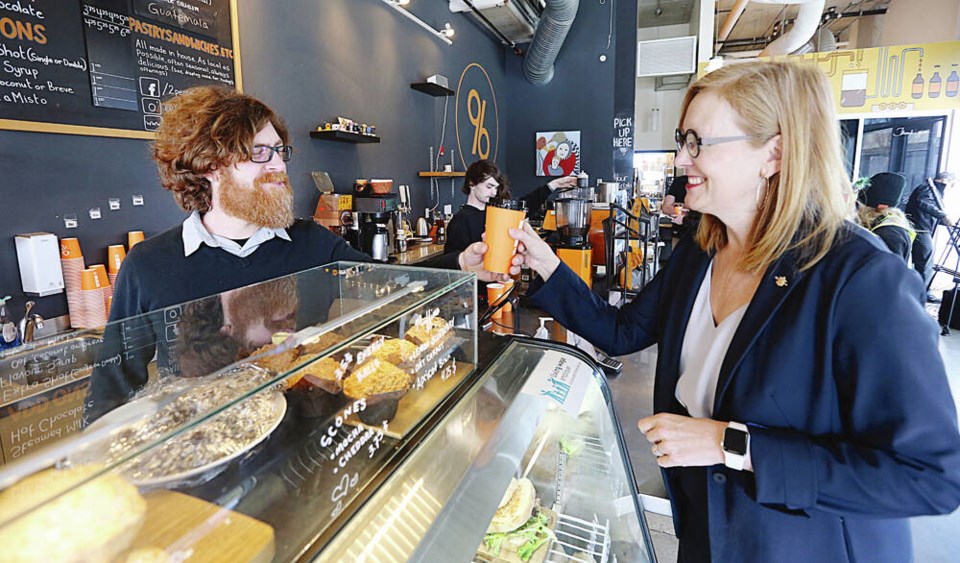Minimum-wage workers will make $16.75 an hour as of June 1, a hike of $1.10 that B.C.’s labour minister says keeps up with inflation.
Workers’ rights advocates celebrated the raise but business leaders said the hike will leave already stretched small business owners struggling to keep up.
The 6.9 per cent increase from the current minimum wage of $15.65 is just above the 6.75 per cent raise the government gave public-sector employees this year.
“When times are tough, we need to ensure our lowest-paid workers don’t fall further behind,” Labour Minister Harry Bains said during a news conference Wednesday in front of 2% Jazz café in Victoria. “Having a minimum that keeps up with the rising cost of living is also a key step in our effort to lift people out of poverty.”
Once the wage hike takes effect, B.C. will have the second-highest minimum wage in Canada, just behind Yukon with a minimum wage of $16.77.
Anastasia French, provincial manager of Living Wage for Families B.C., a workers’ advocacy group, said the wage hike is good news for thousands of workers but it’s still $7-an-hour behind the living wage, the baseline amount people need to live and pay their bills. The living wage in Greater Victoria is $24.29 an hour.
“That gap between the minimum wage and the living wage is growing,” French said. She wants to see the government take action to bring costs down and plan for further minimum-wage increases so people don’t have to work multiple jobs to pay for essentials like food and rent.
Annie Dormuth, who represents the B.C. branch of the Canadian Federation of Independent Business, said the new minimum wage will put a huge strain on small businesses that don’t have the ability to absorb higher costs.
More than half the province’s small businesses are still experiencing below-normal sales and are carrying an average of $85,000 in COVID-19-related debt, according to the federation.
Dormuth called on the government to balance the wage increases by reducing the number of businesses on the hook for paying the employer health tax, helping businesses cover the cost of paid sick days and giving employers rebates through WorkSafeBC’s $3.4-billion surplus.
Anita Huberman, president and CEO of the Surrey Board of Trade, said in a statement that the board is “disappointed that such a significant minimum wage increase was announced today, leading to further unsustainable cost increases for businesses.”
The government should have discussed such a wage hike with the business community last year, Huberman said, especially in the face of higher taxes and fees facing businesses.
Asked about the pressures on small businesses, Bains said the main concerns he hears from employers is the difficulty in attracting and retaining workers. Raising the minimum wage will help businesses attract the workers they need, he said.
Of the about 150,000 people working for minimum wage, 58 per cent are women, 52 per cent were 25 or older and 21 per cent were youth ages 15 to 19 and attending school. Many minimum-wage workers work in food service, and grocery or retail stores.
The government said B.C.’s minimum wage has increased from one of the lowest in the country to one of the highest.
Last year, the minimum wage rose 45 cents or 4.1 per cent from $15.20 to $15.65 an hour. The minimum wage rose 5.4 per cent between June 2019 and June 2020, and 9.5 per cent from June 2018 to June 2019. It remained stagnant between 2002 and 2010.
B.C.’s consumer price index in February 2023 was 6.2 per cent higher than the same time last year.
The Labour Ministry said the 6.9 per cent increase will apply to wages for residential caretakers, live-in home-support workers and camp leaders. On Jan. 1, 2024, piece rates for 15 hand-harvested crops will also increase by 6.9 per cent.
>>> To comment on this article, write a letter to the editor: [email protected]



